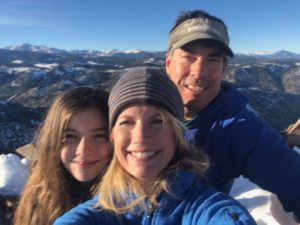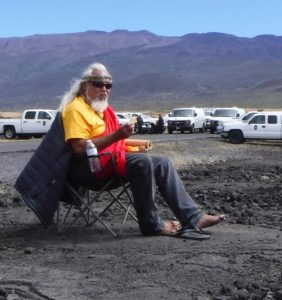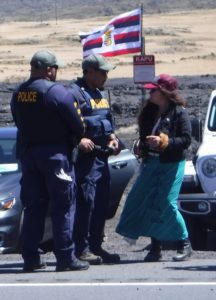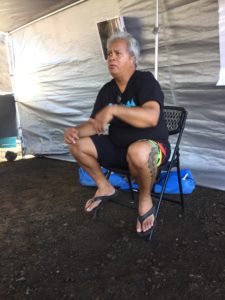
Professor
Director, Walter H. Capps Center for the Study of Ethics, Religion, and Public Life
HSSB 3001G
Ph.D., University of Chicago
About
Greg Johnson (PhD University of Chicago) is Professor in the Department of Religious Studies at the University of California, Santa Barbara, where he is also director of the Walter H. Capps Center for the Study of Ethics, Religion, and Public Life. He also serves on the UCSB campus Repatriation Review Committee and on the faculty council for American Indian and Indigenous Studies.
Johnson’s research focuses on the intersection of law and religion in contexts of indigenous struggles over burial protection, repatriation, and sacred land. His work has focused primarily on Hawaiian and Native American contexts but also on emerging forms of global indigeneity. Johnson’s publications include numerous articles, chapters, online essays, and the following books: Sacred Claims: Repatriation and Living Tradition (UVA 2007), Handbook of Indigenous Religion(s) (co-edited with Siv Ellen Kraft, Brill 2017), Irreverence and the Sacred: Critical Studies in the History of Religions (co-edited with Hugh Urban, Oxford 2018), the open access volume Indigenous Religion(s): Local Grounds and Global Networks (co-edited with Kraft, Tafjord, Alles, and Longkumer, Routledge 2020), a working manuscript entitled Religion in the Moment: Tradition, Law, and Contemporary Indigeneity, and a co-authored project with Marie Alohalani Brown, Standing in Ceremony: Native Hawaiian Religion, Telescope Protests, and Legal Struggle on Mauna Kea.
Johnson is on the editorial boards of American Religion and Religion Compass and the editorial advisory board of History of Religions. He served as Program Director and on the Board of Directors of the American Academy of Religion, the Executive Council of the North American Association for the Study of Religion, and is an elected member of the American Society for the Study of Religion.
In the past decade, Johnson has engaged in various forms of advocacy and activism with reference to repatriation and sacred land struggles. He has written about these unfolding and experimental efforts in various places, including “Off the Stage, On the Page: On the Relationship of between Advocacy and Scholarship;” “Ritual, Advocacy, and Authority: The Challenge of Being an Irreverent Witness;” several pieces on the TMT dispute for Counterpoint, and a new manuscript, “Finding Space for Advocacy as/and Scholarship on Mauna Kea.” This advocacy work has also involved convening several workshops in Hawai`i in collaboration with the Native American Rights Fund and the University of Colorado School of Law project on Implementing the United Nations Declaration on the Rights of Indigenous Peoples.






Courses Taught
RS 14 Annually
Native American Religious Traditions
RS 104 2021, 2022
Problems in the Study of Religion
RS 200TR Spring 2023
Tradition
Centering the category “tradition,” we will explore and theorize ways the concept has been announced and enacted in three overlapping spheres: religious contexts, academic debates, and law/politics. We will engage classical theories of continuity and change, recent theorizations of invention, articulation, and discursive tradition, as well as contemporary examples of scholars and activists reclaiming the category. Adjacent conceptual terrain to be covered includes discourses of purity, orthodoxy, authenticity, and other boundary-fortifying categories. Particular attention will be focused on theorizing friction, conflict, and debate as sites and sources of tradition-making. A key set of questions we will pursue pertains to the rhetoric of tradition, including at the level of who invokes the category and with regard to the how and why certain people, texts, utterances, actions, places, and things are deemed traditional (or not). The course will be driven in part by examples from students’ research areas (e.g., ancestral invocations or the asserted status of sacred texts) in the service of our shared project to theorize claim-making about the standing of the past in the present.
RS 292 Spring 2020
Prophecy, Protest, Protection: Indigenous Environmental Movements in Comparative Perspective
The course focuses on historical and contemporary protest movements in North America and Hawai`i, including at Standing Rock and on Mauna Kea. Analyses of these movements and their religious underpinnings, idioms, and actions will be supplemented and relativized by consideration of related movements elsewhere (e.g., Sami territories in Europe, Bribri territories in Costa Rica, and Nagaland in Northeast India). In order to link the material of the course to core issues in the academic study of religion, sustained attention will be devoted to theorizing discourses of tradition, temporality, and sovereignty, as well as to the practice of comparison.
W 5:00-7:50, HSSB 3024